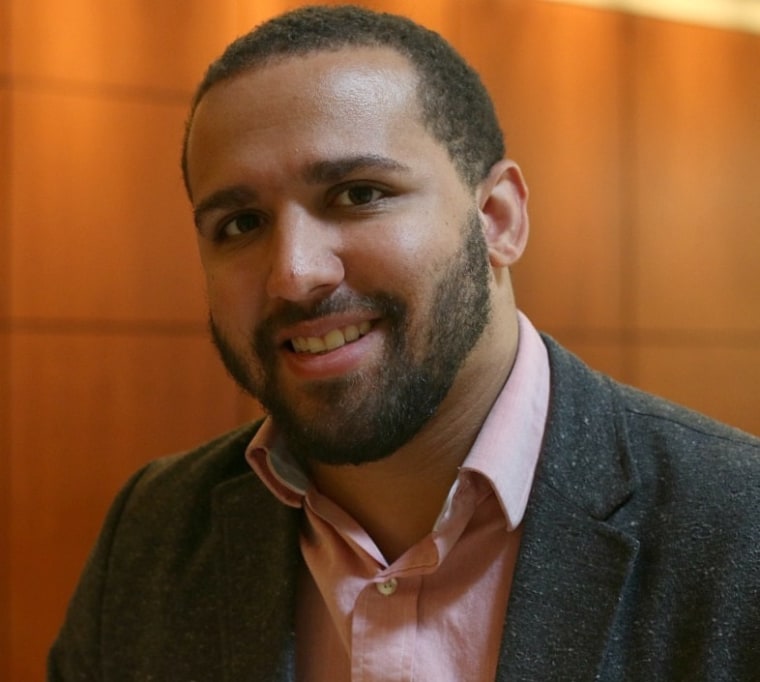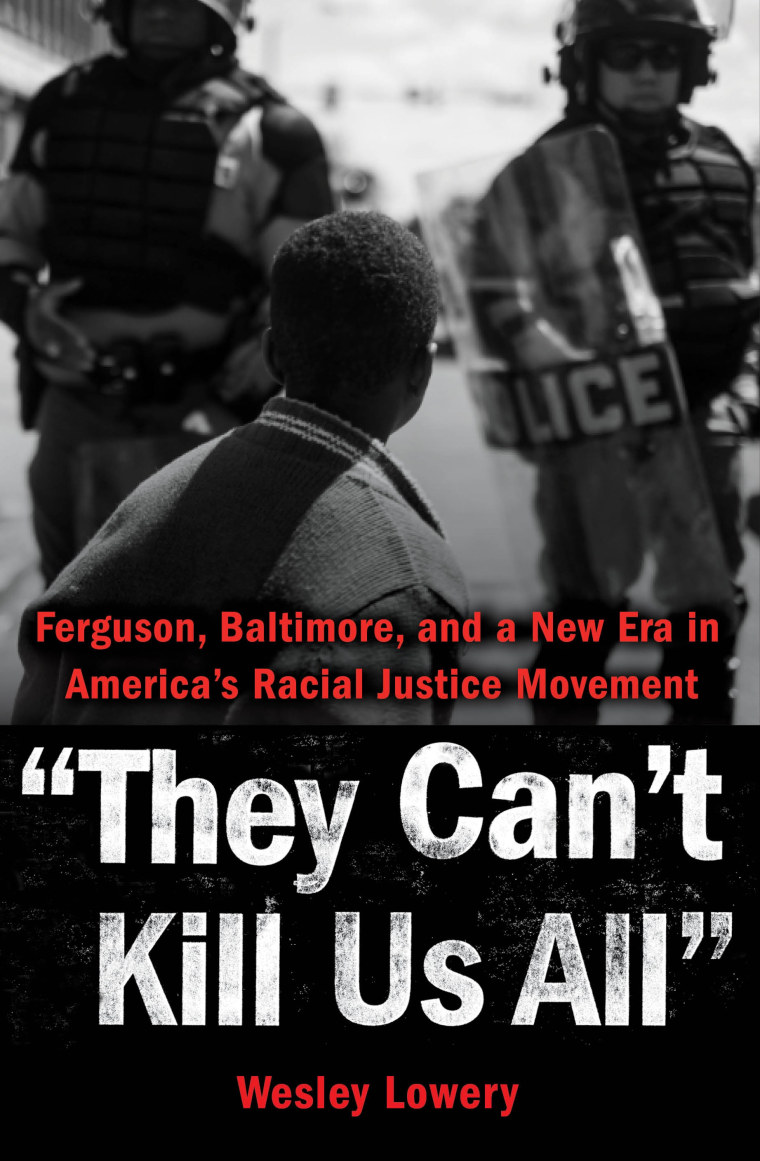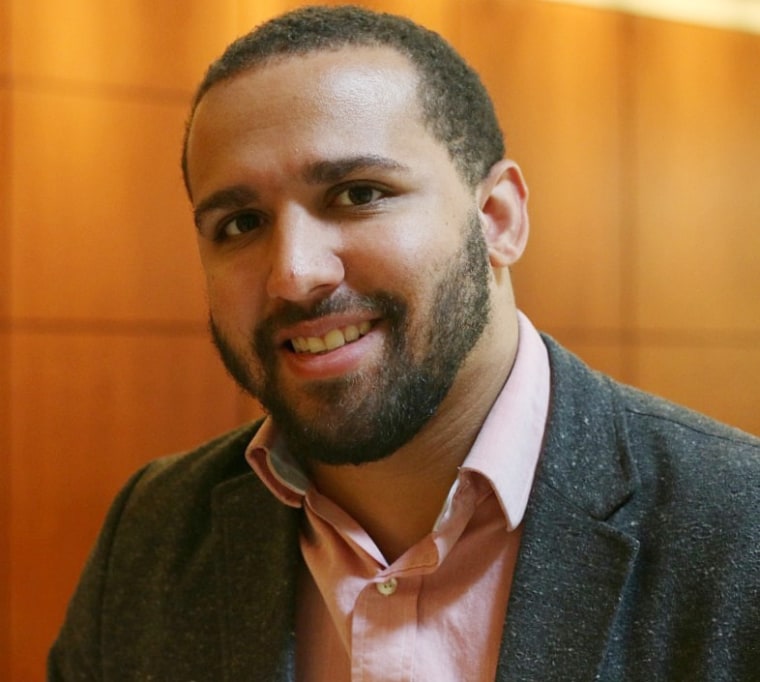Wesley Lowery never intended to cover another police shooting in his career.
As a matter-of-fact, his goal “had always been to cover politics.”
But when he landed in Ferguson, Missouri, two days after Michael Brown, 18, was shot and killed by law enforcement, Lowery found himself on the front lines of an uprising of sorts. It was a story that he felt compelled and committed to tell – and now two years later he has authored a first-person account of his experiences.

His first book, “They Can’t Kill Us All: Ferguson, Baltimore, and a New Era in America’s Racial Justice Movement” made its debut November 15 and is published by Little, Brown and Company.
“Now that the book is done, I can exhale,” he told NBCBLK.
While on a train traveling back to Washington, D.C. from New York, Lowery shared that it took him a year to write the book.
“What is so different about this is that I am use to writing quickly,” he said. “I am use to going to a city, writing a piece for tomorrow or next weekend and moving on to the next thing. Now there is this weird lack of knowledge about what comes next.”

As a journalist for the Washington Post, Lowery said there was a privilege around not being entirely too invested. If people hate an article, the feedback is not as eternal.
However, the same cannot be said for a book. With a book, he said, the experience is longer lasting and there is no guarantee the feedback will be positive.
Lowery became part of the Ferguson story when he and a colleague were arrested in the lobby of McDonald’s during their first week there. He shares the experience of that moment in the introduction of the book.
“Okay, let’s take him,” begins the chapter. He then chronicles the experience of being shoved against the soda dispenser and arrested by police, being held without being booked and ultimately being released.
Lowery never meant to cover Ferguson.
He was monitoring the story from afar, watching it unfold through the work of a colleague and friend, Brittany Noble, he says in the book. An editor, he writes, overheard him discussing the story with a colleague. When asked if he could get on a plane, Lowery responded with, “Sure!”
RELATED: Delrish Moss Becomes First Black Police Chief in Ferguson
“I’d drop in for a day or two, gather some anecdotes for a story for one of that weekend’s papers, and probably be home in time to watch Sunday football with the guys at Smoke & Barrel, our regular barbecue and whisky spot in Adams Morgan,” he writes.
But when he arrived, he told NBCBLK, he knew there was something bigger going on there.
“The thing I often say about Ferguson is that you could feel it in the air. What I saw very early in Ferguson was that this moment mattered,” he said. “This was something bigger. This was not something that would just go away.”
He would spend a little over three months covering Ferguson.
“I am blessed to be in a place that had the resources to keep with this story,” he said of the Post. “It has been a remarkable two and a half, almost three years. The Post always stood by me. They never pulled me from the story. And I really appreciated that. It allowed me to grow with this story and to build the expertise to be able to tell this story.”
RELATED: On Mike Brown Anniversary, Activists Remember Birth of a Movement
But the book isn’t just about Ferguson.
It is about Baltimore in the aftermath of Freddie Gray.
It is about the aftermath of the bloody massacre at Emanuel African Methodist Episcopal Church.
And it is about Trayvon Martin, Tamir Rice, Sandra Bland, the Black Lives Matter movement and the realities of police brutality and violence in this country. It bookends the past two years, Lowery said.
“This book is not a profile of everything,” Lowery told NBCBLK as his train was leaving Philadelphia.
“It is largely drawn from my notebook of my last two years. I wanted to unweave the tail and reality of what the last two years look like and provide additional context for things unexplained in my reporting," he said. "There are definitely things in the book that are not focused in major ways. I wanted to write about what I knew best and the experiences of being a black man viewing these stories.”
To do justice to the story of Ferguson and moments following, Wesley used everything he had.
“It was a way of putting down a marker, pausing for a moment and thinking back on what I have learned and what more I could learn from the past two year,” he said. “And it is a way of pausing for a moment to evaluate myself as I move forward.”
So often, Lowery said, society focuses on the individual incidents and moments as small.
“We hyper litigate the shooting when we should be focused on the historical contexts and what we know about race in America,” he said. “For me, it has been a few years process of learning literally more about our history, about our current realities, having these conversations possibly, reading – I am better prepared today than a year ago.”

